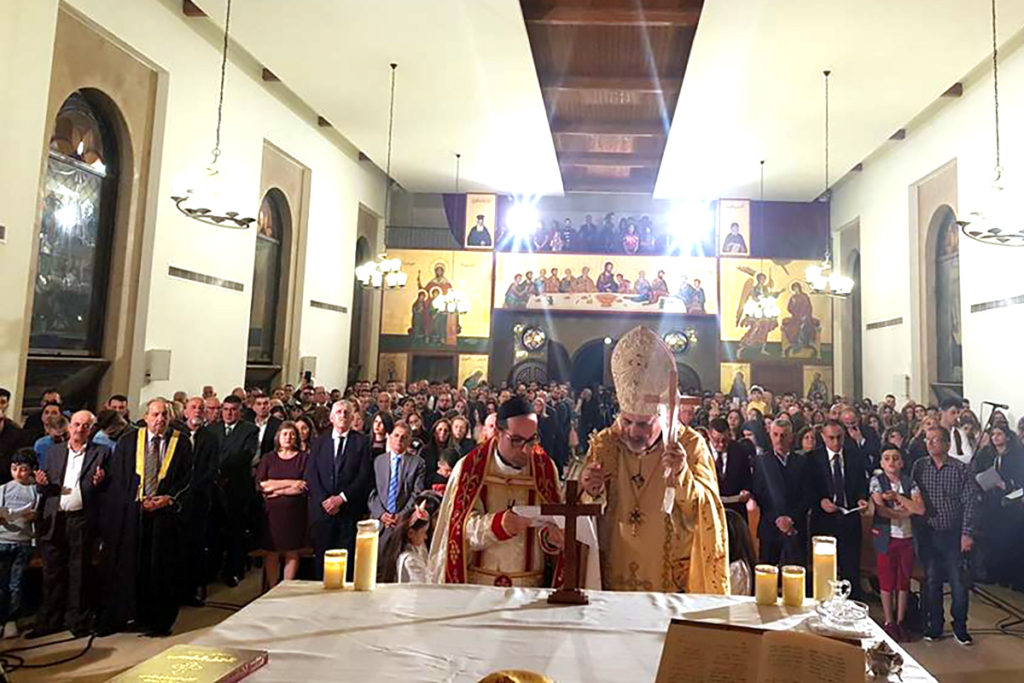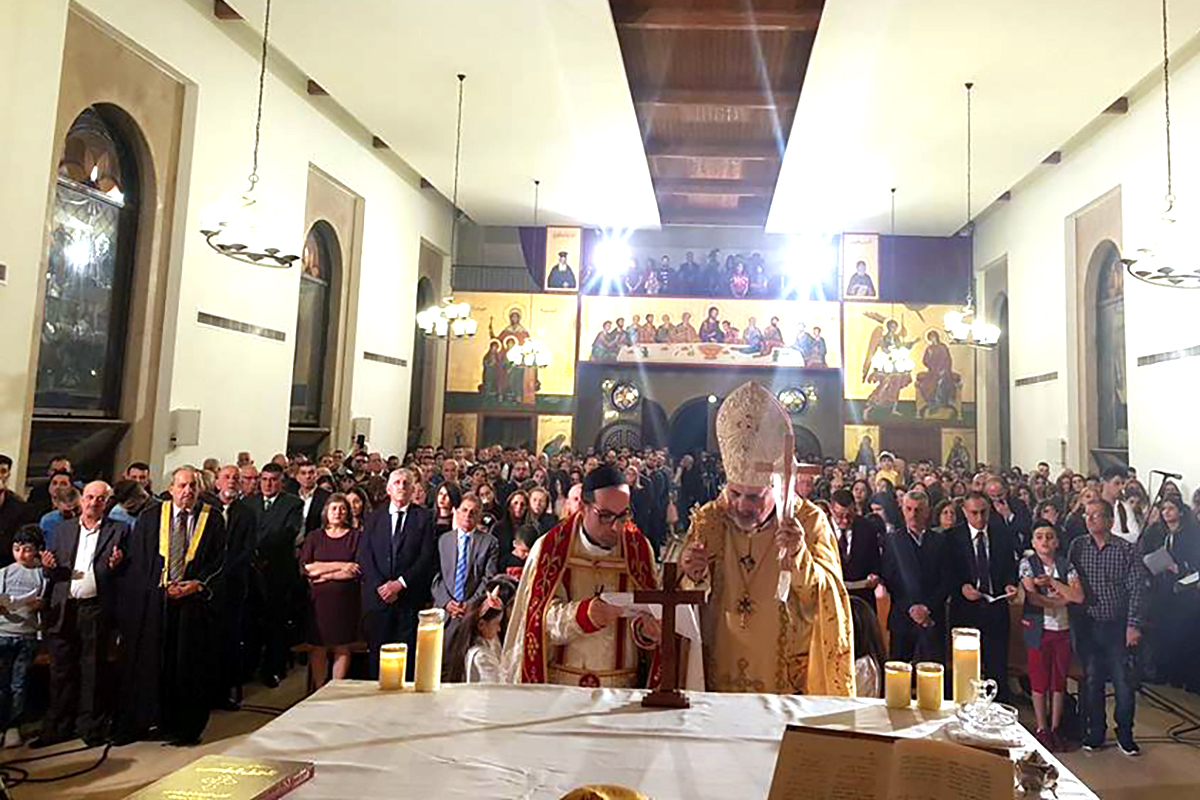
BEIRUT (CNS) — Catholic patriarchs from the Middle East invoked hope in their Easter messages to people suffering from terrorism, wars, displacement and economic hardship.
From Baghdad, Chaldean Catholic patriarch Cardinal Louis Sako emphasized “that our world, which is striving to manufacture all forms of weapons, including weapons of mass destruction, is making wars and thus creating death and destruction.” The Chaldean Catholic Church includes Mar Abraham Chaldean Catholic Parish in Scottsdale, Holy Family Mission in Phoenix and Holy Cross Mission in Gilbert.
Yet, Cardinal Sako said, “Christ rose from the dead — Allelulia! — and Iraq must rise from its crises.” The Maronite Catholic Church includes
“What we have lived through, and the blood of martyrs, all these lean years, will inevitably find a harmonious way of living together in peace.”
The Christian population in Iraq, numbering about 1.5 million before 2003, has dwindled to about 200,000.
Cardinal Sako emphasized that the Church is “one family embracing all people” and welcoming them as brothers and sisters without regard to their religious and ethnic affiliations. He urged the faithful to pray for peace, stability and harmony in Iraq and the region, and to pray for the new government’s efforts “to bear fruit for the future of Iraqis.”
From the patriarchate in Lebanon, Syriac Catholic Patriarch Ignace Joseph III Younan noted that in the ancient tradition of the Syriac rite, “we sing of peace as the first gift of the Resurrection.”
“How much we do need today peace and reconciliation among the peoples of the Middle East,” said Patriarch Younan, who had visited Baghdad early in Holy Week.
“We have to recognize and repeat that stability and civilized laws in this tormented region are the most urgent need for the survival of Christians and other minorities,” he said.
In his Easter message, Patriarch Younan thanked God for facilitating the return of Catholics to villages and towns in Iraq’s Ninevah Plain. More than 100,000 Christians were driven from the region by the Islamic State in the summer of 2014. Many families fled to the Kurdish region in northern Iraq, where they remain or have emigrated.
Patriarch Younan reminded the leaders of Iraq “to realize their grave responsibility” to ensure the safety and protection of all citizens “who courageously fulfill their duties, in the hope of living in a reconciled, just and fair national society, without discrimination or oppression.”
He also urged his flock who were uprooted “to return home and continue to witness to the Gospel of love and peace.”
“For all those who have endured exile, we ask the Lord to be their consolation and strength,” Patriarch Younan added.
With regard to Syria, Patriarch Younan thanked God “for the calm and stability in the great majority of its provinces and cities.”
“But we cannot ignore the hardship of living for the majority of innocent common people in this … war-torn country,” the Syrian-born prelate stressed.
The patriarch thanked Lebanon for hosting some 1.5 million Syrian refugees, despite Lebanon’s economic difficulties and hardships.
He also reiterated the plea for the release of all those kidnapped in Syria, especially the two archbishops of Aleppo, Syriac Orthodox Metropolitan Gregorios Yohanna and Greek Orthodox Metropolitan Paul, kidnapped in April 2013 in northern Syria.
From the patriarchate in Lebanon, Maronite Catholic patriarch Cardinal Bechara Rai prayed that “Easter would bring about the resurrection of our country from its economic, financial and daily living crises, and be a day of peace and stability in the countries of the Middle East, especially in Palestine, Iraq and Syria.” The Maronite Catholic Church includes St. Joseph Maronite Catholic Parish in Phoenix.
Cardinal Rai also prayed for the return of all refugees to their homelands, “to preserve their identity, culture and civilization,” as well as to relieve Lebanon of its economic, development and labor force burdens.






